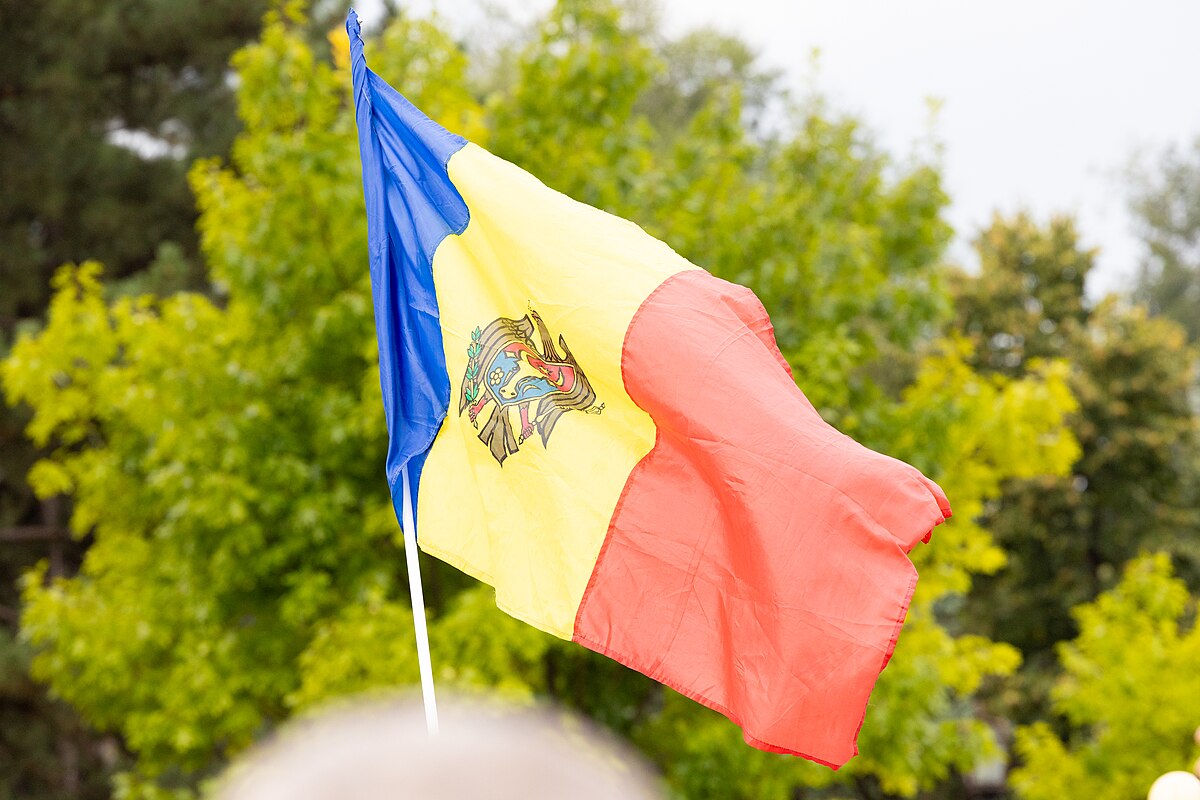Moldova’s electoral commission barred a pro-Russian party from participating in Sunday’s parliamentary election after a court found evidence of voter bribery and illegal financing, as authorities race to counter what they describe as unprecedented Russian interference in the crucial vote.
The decision reflects the intensity of Moscow’s current destabilization efforts, as authorities detained 74 people this week for allegedly preparing election violence and Russian intelligence services spread unsubstantiated claims about Western troops massing near Moldova’s borders.
Sunday’s election could determine whether the EU candidate country continues its Western trajectory or falls back into Moscow’s sphere of influence – with potential implications for Ukraine’s southern flank security.
Russian operations escalate ahead of crucial vote
The Central Electoral Commission’s action against the Heart of Moldova party followed a court ruling restricting the party’s activities for 12 months due to allegations of voter bribery, illegal party financing and money laundering.
The party was a key component of the Russia-friendly Patriotic Electoral Bloc, viewed as one of the main opponents to the ruling pro-EU Party of Action and Solidarity (PAS).
Party leader Irina Vlah was banned from entering Latvia, Estonia and Poland on Thursday, with Baltic and Polish authorities accusing her of “helping the Russian Federation interfere in the preparations for the parliamentary elections.”
The moves come after Moldova detained 74 people suspected of preparing violent unrest this week, with officials saying the suspects had traveled to Serbia for training that included firearms handling, crowd-control tactics, and provocations during protests under instruction from Russian operatives. Participants were reportedly paid around €400 each.
Intelligence warfare intensifies
Russia’s Foreign Intelligence Service (SVR) has accused the European Union of conspiring to “occupy” Moldova with NATO troops following Sunday’s election, making unsubstantiated claims that Western forces are massing in Romania and Ukraine’s Odesa port city.
“Euro-bureaucrats in Brussels are determined to keep Moldova in line with their Russophobic policies. They intend to do this at any cost, including deploying troops and carrying out the de facto occupation of the country,” the SVR alleged without providing evidence.
Russian-backed networks have employed multiple tactics including recruiting Moldovans abroad to vote in an organized manner, staging protests calling for government resignation, and running large-scale disinformation campaigns on social media platforms.
President Maia Sandu has warned that if Moscow gains control over Moldova, “European funds will cease, Moldova could become a springboard for incursions into Odesa Oblast [in Ukraine], and the Transnistrian region will be destabilized.”
Opposition claims political persecution
Irina Vlah condemned the electoral commission’s decision as an “abusive decision” and called it a “political spectacle, concocted a long time ago” by the ruling party. She claimed in a Facebook statement that “a scenario has been implemented against us” in recent weeks.
The Party of Action and Solidarity has held a strong parliamentary majority since 2021, but risks losing it in Sunday’s race. Recent polling suggests PAS may retain the lead but without a parliamentary majority, leaving room for political maneuvering by Russian-backed opposition forces.
Cristian Cantir, an associate professor of international relations at Oakland University, told The Associated Press that pro-Russian parties may use the ban to claim discrimination and energize supporters.
“If political competitors break the law and contribute to the Kremlin’s plans to undermine Moldova, an institutional response is necessary for the preservation of the country’s security and democracy,” he said.
Moscow has repeatedly denied election meddling. Russia’s Foreign Ministry dismissed allegations of interference as “anti-Russian” and “unsubstantiated” in a Thursday statement.
Pattern of sustained Russian interference
The current operations build on years of documented interference campaigns. In 2024, Russian-based oligarch Ilan Șor funneled $39 million into vote-buying schemes ahead of Moldova’s presidential elections and EU referendum, reaching an estimated 300,000 voters.
A confidential intelligence report from Moldova’s Security and Intelligence Service revealed sophisticated operations combining financial manipulation, social engineering, and disinformation tactics coordinated by the Russian FSB.
Experts warned that Moldova would face intensified destabilization efforts ahead of the 2025 parliamentary vote, with Russia exploiting internal divisions to promote an anti-European agenda.
With nearly 12% of Moldova’s territory under effective Russian control through the breakaway Transnistria region, the country remains a key battleground in Moscow’s efforts to maintain influence over former Soviet states and prevent their integration with Western institutions.




